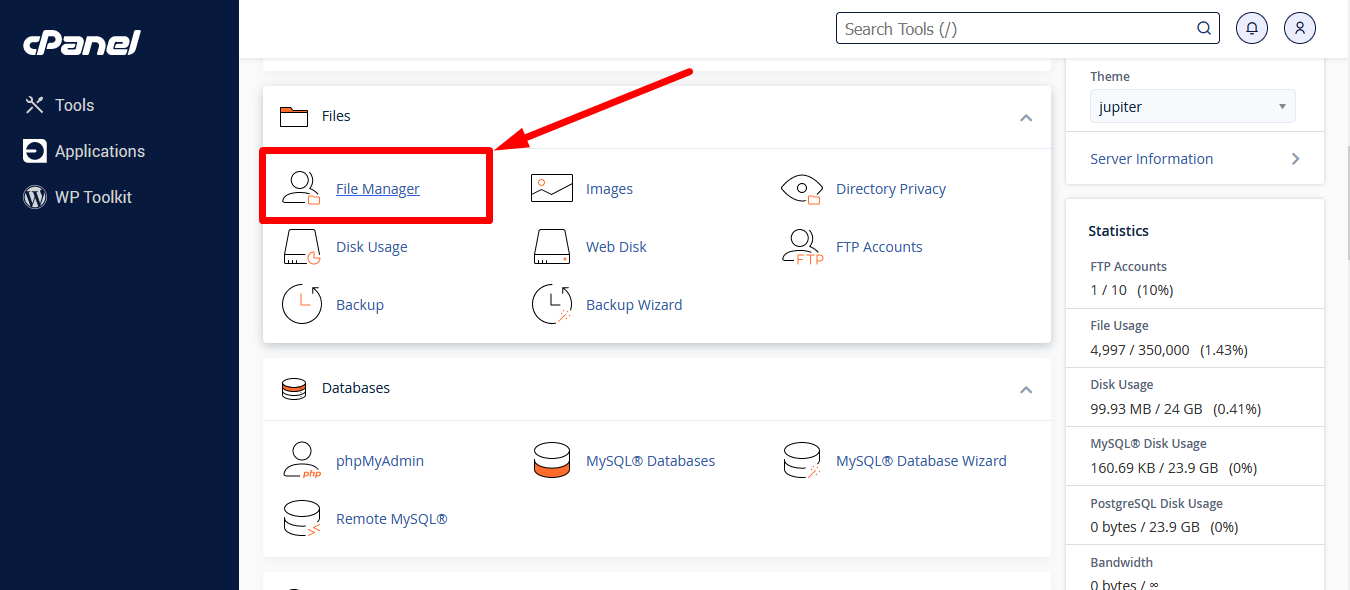- Access your cPanel account.
- Access the File Manager.
Within cPanel, locate and click on the “File Manager” option. This will take you to the file management interface of your web server.
- Navigate to the directory where your plugins are located.
Once in the File Manager, you should see a list of folders and files on your server. You’ll need to navigate to the root directory of your website, which is typically inside the “public_html” folder or the folder named after your domain. Within the root directory of your website, look for the folder named “wp-content“.Inside “wp-content“, you will find another folder named “plugins“. Click on this folder to access the list of plugins installed on your site.


- Deactivate the plugins.
In the “plugins” folder, you will see a list of folders, each representing an installed plugin. To deactivate a particular plugin, simply change the name of the plugin’s folder by adding “-disabled” to the end of the name. For example, if you want to deactivate a plugin named “wordpress-seo” change the name of its folder to “wordpress-seo-disabled“.
- Check your website.
After deactivating the plugin or plugins causing issues, verify your website. Access your domain in a web browser and ensure the problem has been resolved. If the site functions correctly, you have successfully deactivated the problematic plugin. - Reactivate plugins (if necessary).
If the issue is resolved and you wish to reactivate a plugin, simply change the plugin’s folder name back to its original name, removing “-disabled” from the name.
Note: Remember that deactivating a plugin in the file manager is only a temporary measure to troubleshoot issues. Make sure to investigate and resolve any conflicts or errors in your plugins so you can reactivate them when appropriate.
Joni Mozis
Project Manager



























